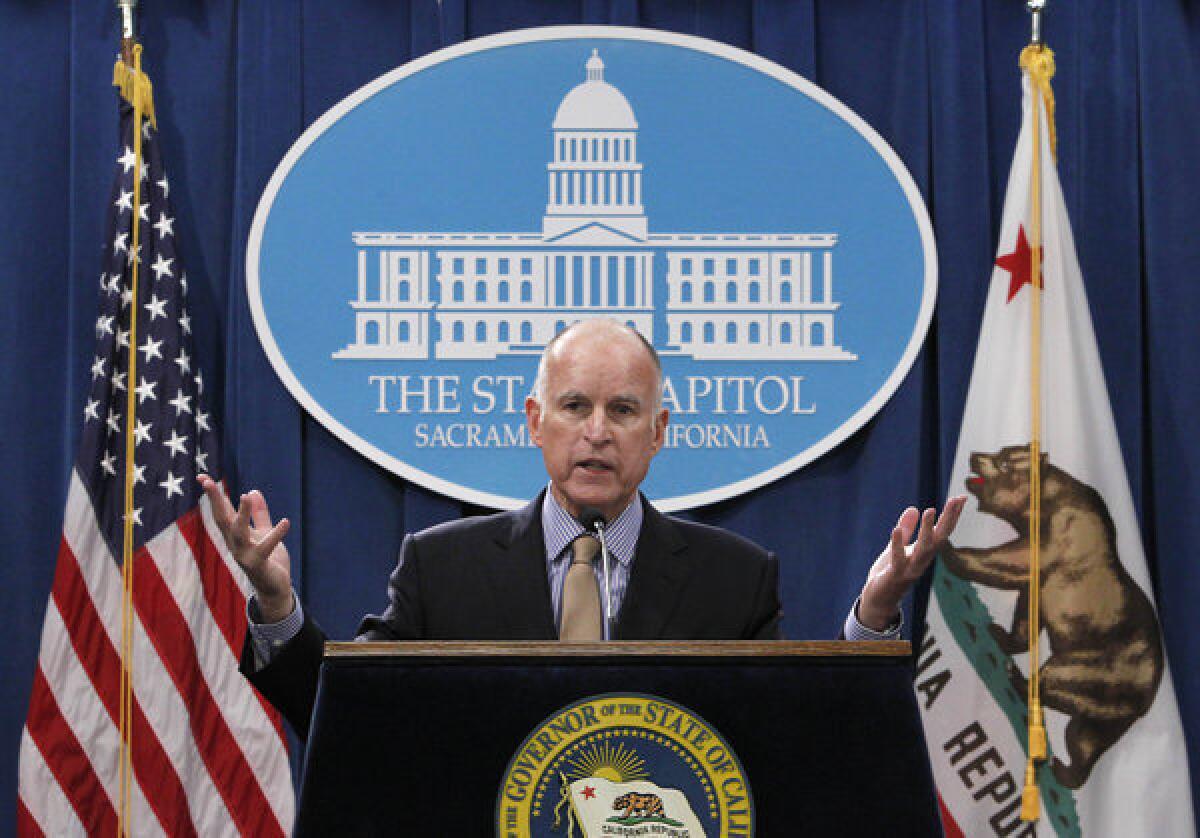Gov. Brown chided for plan to borrow from cap-and-trade funds

Gov. Jerry Brown sparked controversy Tuesday when he proposed to shift $500 million out of the state’s Greenhouse Gas Reduction Fund and loan it to the state general fund as part of the effort to balance the budget.
The money would come from a program to limit carbon emissions by factories and other big polluters. The program allows firms to buy credits to produce more than their share of carbon emissions. The credits can be purchased from the state and other businesses that don’t use their full share.
Lending that money would be “extraordinarily disappointing,” said Kathryn Phillips, director of Sierra Club California. “The governor will be delaying opportunities to use those funds to actually get critical reductions in global warming pollution,” she said.
If the state delays using the funds for reforestation and energy efficiency projects, that will delay the positive environmental effects of those efforts, she added.
Brown’s Department of Finance said in a letter to lawmakers that proceeds from the cap-and-trade system were originally proposed for programs to reduce greenhouse gas that could be funded by the general fund.
“The loan is appropriate because the agencies need further time to design and develop their programs to ensure that when the programs receive funds they will further the purposes of AB 32 and maximize long- term greenhouse gas reductions,” the Brown administration wrote.
The letter also said the Air Resources Board needs more time to develop a plan that would help inform how to best invest the money.
Brown’s plan for the state Natural Resources Agency provides an additional $51 million for fighting wildfires to match historical spending levels.
ALSO:
California lawmakers approve blank budget bills
Jerry Brown files notice to appeal prison ruling to Supreme Court
Jerry Brown’s budget ‘surplus’ could be used entirely for schools
More to Read
Get the L.A. Times Politics newsletter
Deeply reported insights into legislation, politics and policy from Sacramento, Washington and beyond. In your inbox three times per week.
You may occasionally receive promotional content from the Los Angeles Times.











